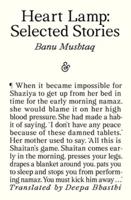Publisher's Synopsis
This historic book may have numerous typos and missing text. Purchasers can download a free scanned copy of the original book (without typos) from the publisher. Not indexed. Not illustrated. 1862. Excerpt: ... CHAPTER XIX. ROSSINI SPOHK BEETHOVEN WEBER AND HOFFMANN. Bellini and Donizetti were contemporaries of Rossini; so were Paisiello and Cimarosa; so are M. Verdi and M. Meyerbeer; but Rossini has outlived most of them, and will certainly, outlive them all. It is now forty-eight years since Tancredi, fortyfive since Otello, and forty-five since II Barbiere di Siviglia were written. With the exception of Cimarosa's Matrimonio Segretto, which at long intervals may still occasionally be heard, the works of Rossini's Italian predecessors have been thrown into utter obscurity by the light of his superior genius. Let us make all due allowances for such change of taste as must result in music, as in all things, from the natural changeableness of the human disposition; still no variation has taken place in the estimation in which Rossini's works are held. It was to be expected that a musician of equal genius, coming after Paisiello and his compeers, young and vigorous, when they were old and exhausted, would in time completely eclipse them, even in respect to those works which they had written in their best days; but the remarkable thing is, that Rossini so re-modelled Italian opera, and gave to the world so many admirable examples of his own new style, that to opera-goers of the last thirty years he may be said to be the most ancient of those Italian composers who are not absolutely forgotten. At the same time, after hearing William Tell, it is impossible to deny that Rossini is also the most modern of operatic composers. That is to say, that since William Tell was produced, upwards of thirty years ago, the art of writing dramatic music has not advanced a step. Other composers have written admirable operas during Rossini's time; but if no Italian opera seria, produc...
























